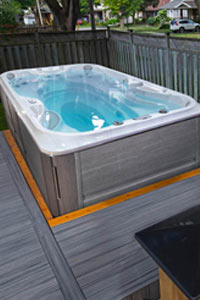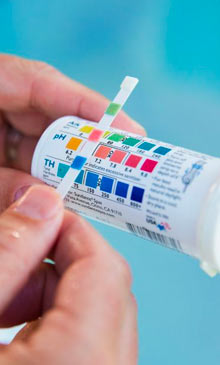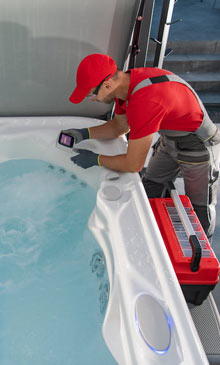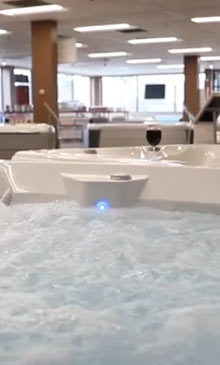Medical doctor and university professor Marc Cohen reviews the evidence for using heat therapy – such as from hot tub or sauna bathing – to treat and prevent viral infections in the peer reviewed journal article “Turning up the heat on COVID-19: heat as a therapeutic intervention,”1 published in F1000Research. Heat therapy has been used to prevent and treat respiratory infections and enhance health and wellbeing throughout human history.
While no clinical protocols exist for using heat to treat COVID-19, Professor Cohen outlines the physical and psychological elements that make heat from regular sauna and hot tub sessions an attractive option for combating viral infections and promoting overall health.
∙ Enveloped viruses, such as rhinoviruses and coronaviruses, are most active in cool dry conditions, but they are sensitive to heat and are destroyed by temperatures tolerable to humans.
∙ A moist mucus barrier is the immune system’s first line of defense and is vital in defending against respiratory infections. This barrier is enhanced by warm humid conditions.
∙ If the infection penetrates the body’s first line of defense, fever is the body’s cardinal response to infection, and heat applied to the whole body mimics the effects of fever.
∙ Heat from sauna and spa sessions enhances sleep, which further supports immune function.
∙ Heat-based treatments can support mental wellness and provide many psychological benefits. Devoting time specifically for relaxation can subdue anxiety caused by the pandemic. Hot tubs and saunas also provide a space for close family members to come together in a time of social distancing.
While it remains to be seen if heat can be effective in the treatment or prevention of COVID-19, there is evidence to support that heat therapies aid your immune system and enhance overall wellbeing; throughout human history hot springs and saunas have been used to prevent and treat respiratory infections and promote health.
1Cohen M. (2020) Turning up the heat on COVID-19: heat as a therapeutic intervention [version 2; peer review: 2 approved]. F1000Research 2020, 9:292 (https://doi.org/10.12688/f1000research.23299.2)















